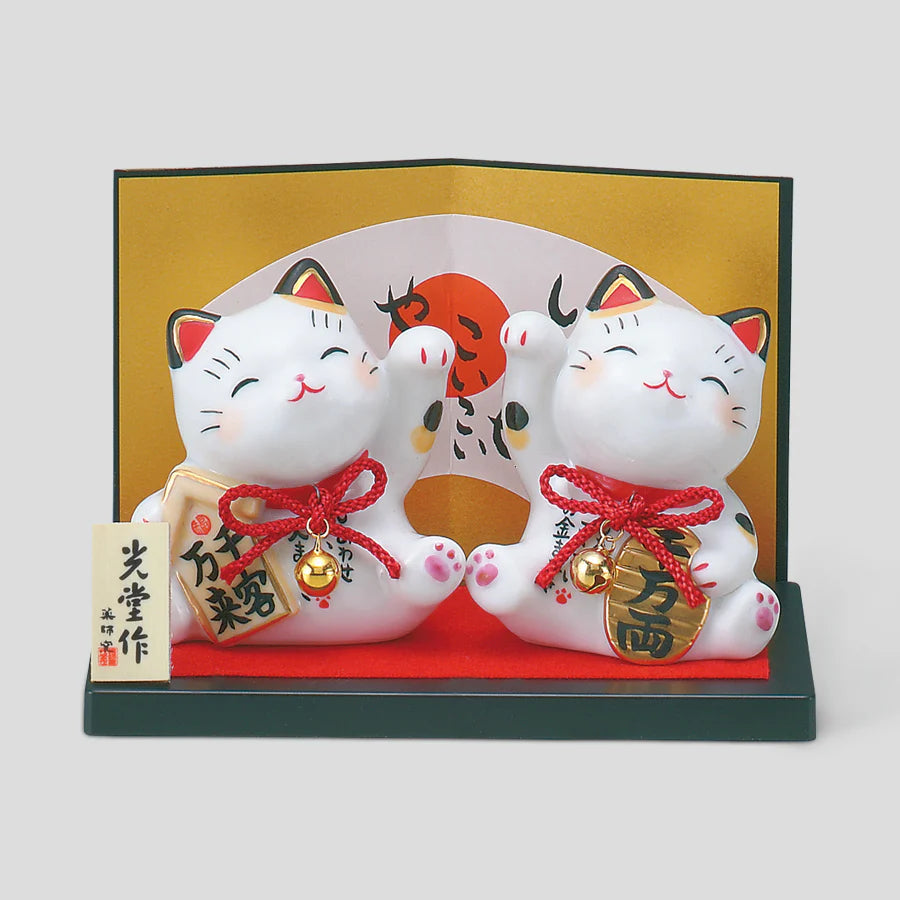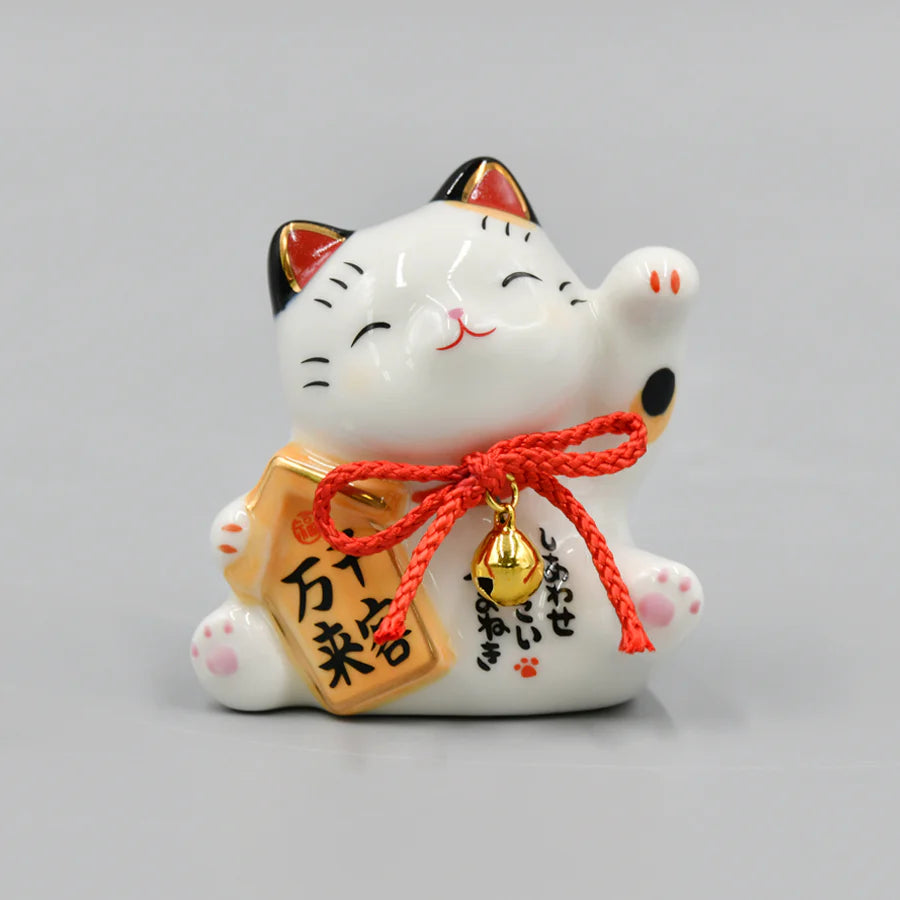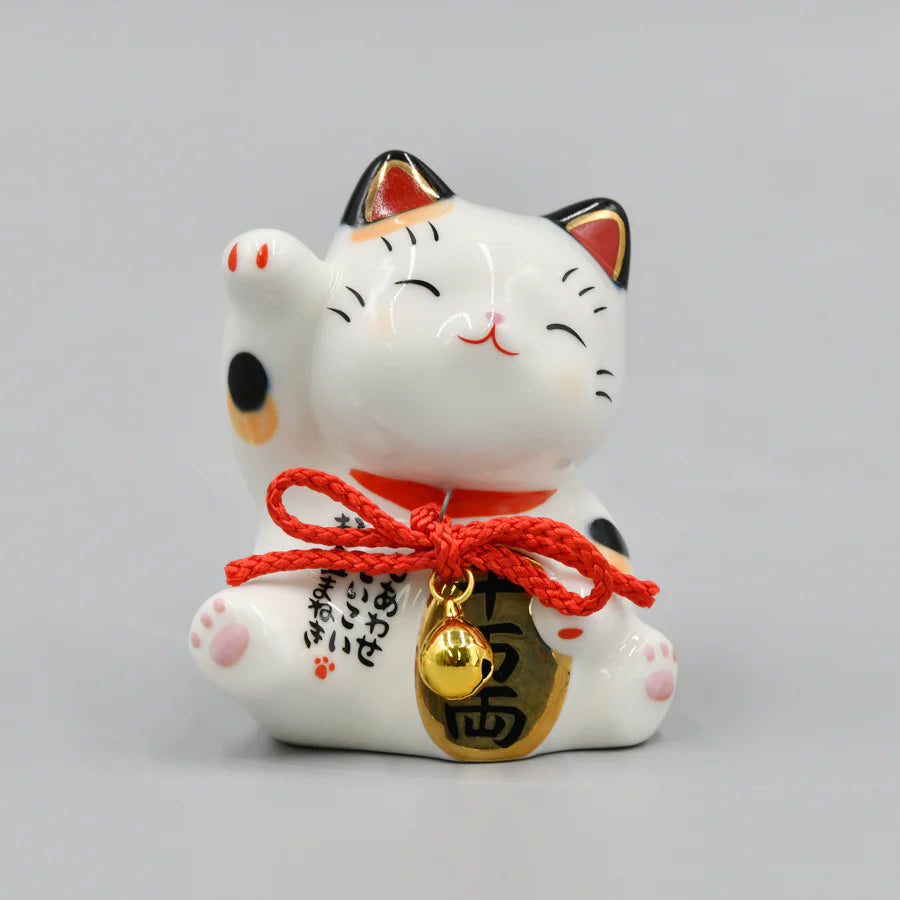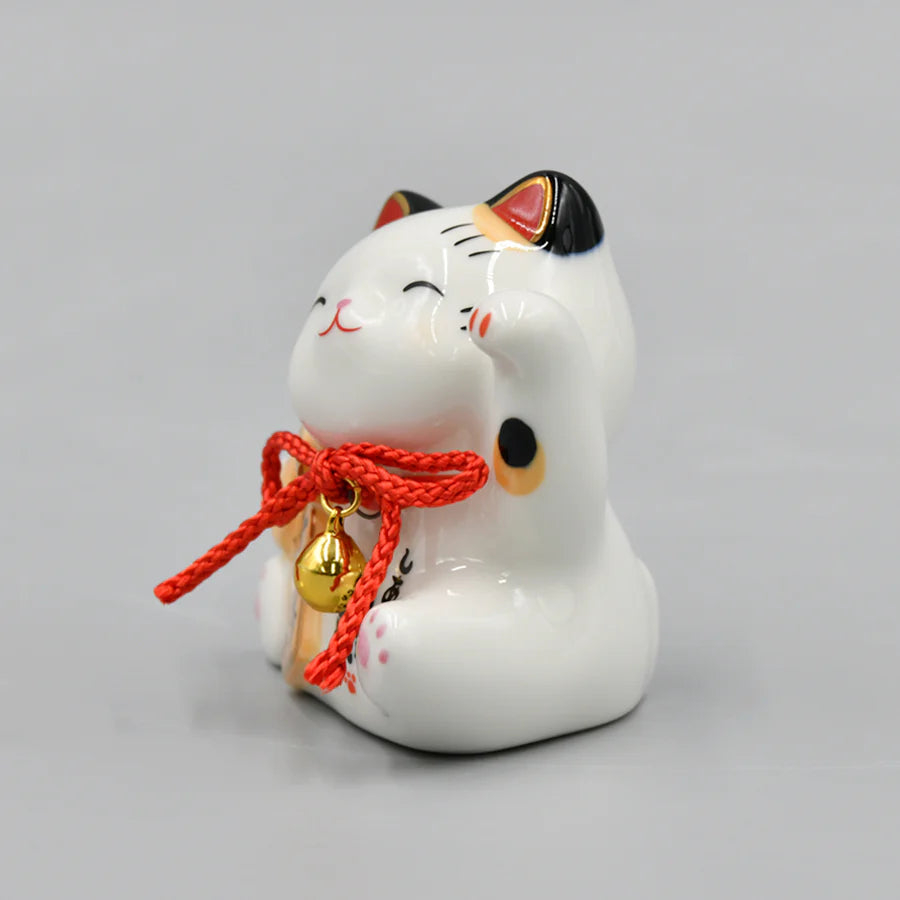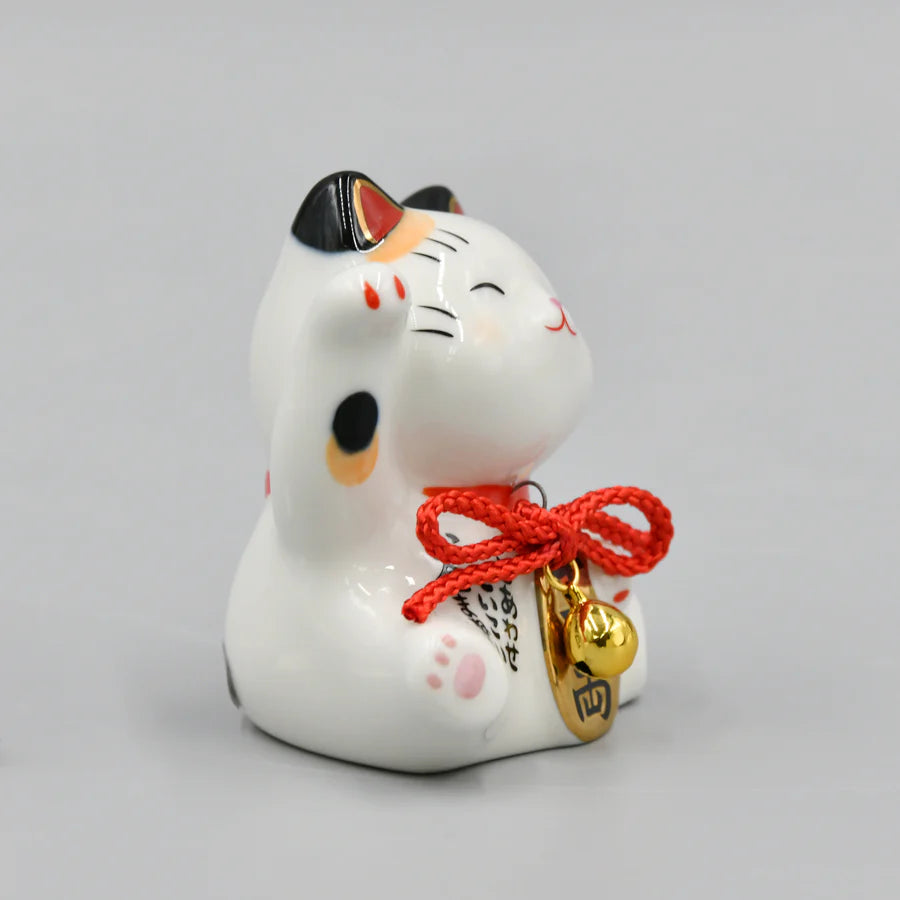 Sale is ending soon
Sale is ending soon
Yakushigama Maneki-Neko Harmonious Smiling Japanese Lucky Beckoning Cat
Yakushigama Maneki-Neko Harmonious Smiling Japanese Lucky Beckoning Cat
YAKUSHIGAMA ⭐⭐⭐⭐⭐
 Star Seller. This seller consistently earned 5-star reviews, shipped on time, and replied quickly to any messages they received.
Star Seller. This seller consistently earned 5-star reviews, shipped on time, and replied quickly to any messages they received.
 Returns & exchanges accepted
Returns & exchanges accepted
- Your order will be shipped within 48 hours
Couldn't load pickup availability
Experience good luck and harmony with the Yakushigama Maneki-Neko. This Japanese lucky beckoning cat features a harmonious smiling expression that will bring positive energy and fortune to your home. Made by Yakushigama, a renowned brand for traditional Japanese ceramics.
Share
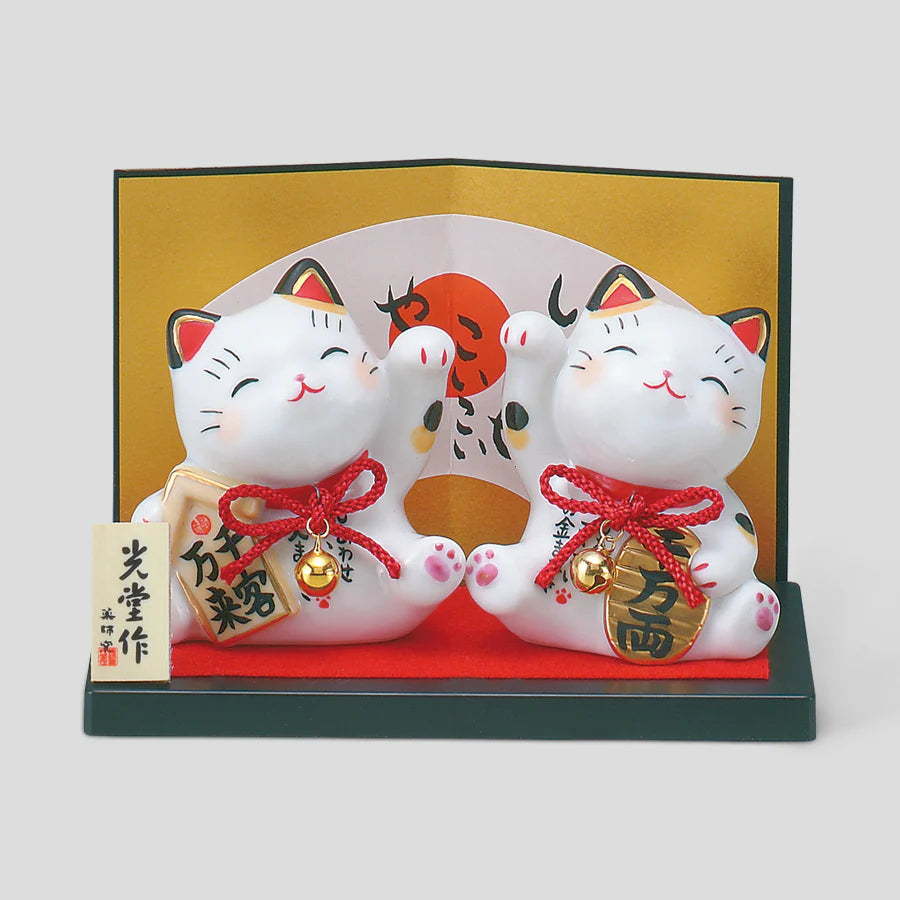
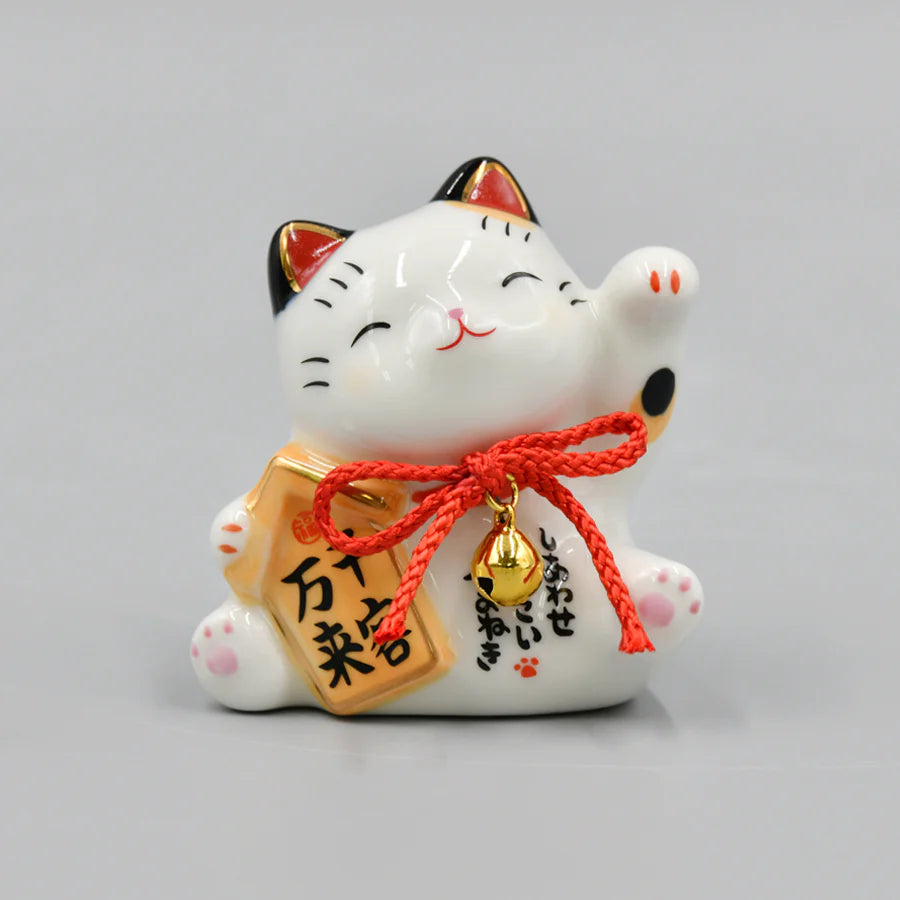
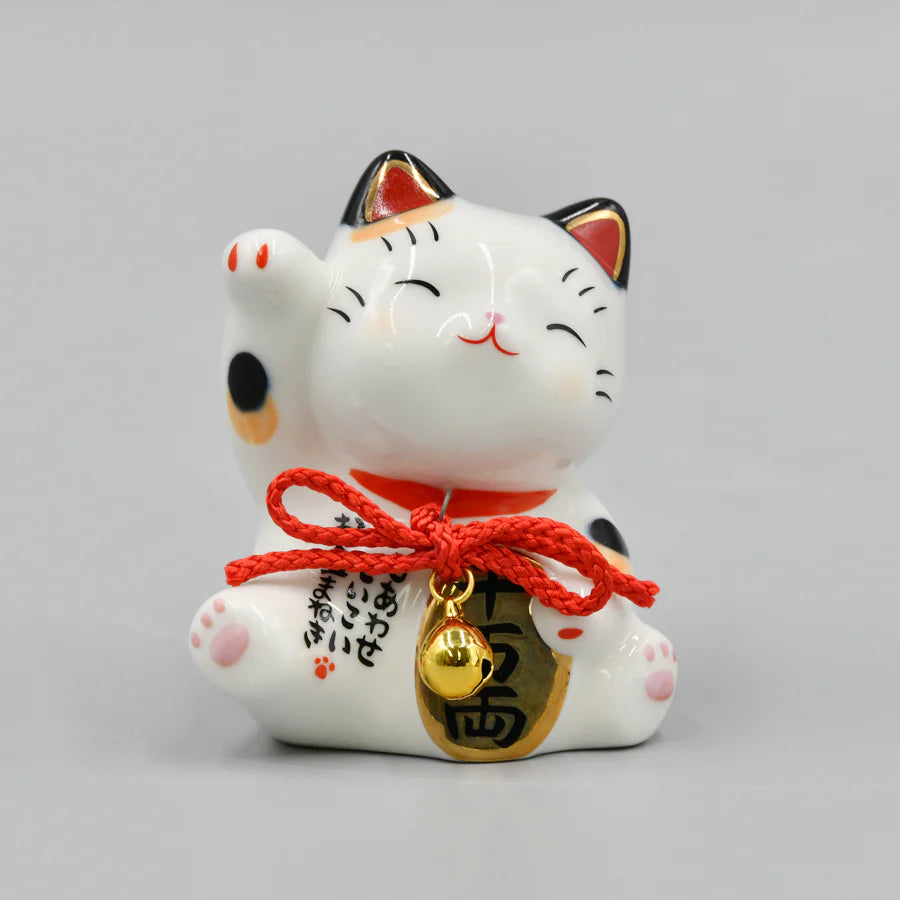
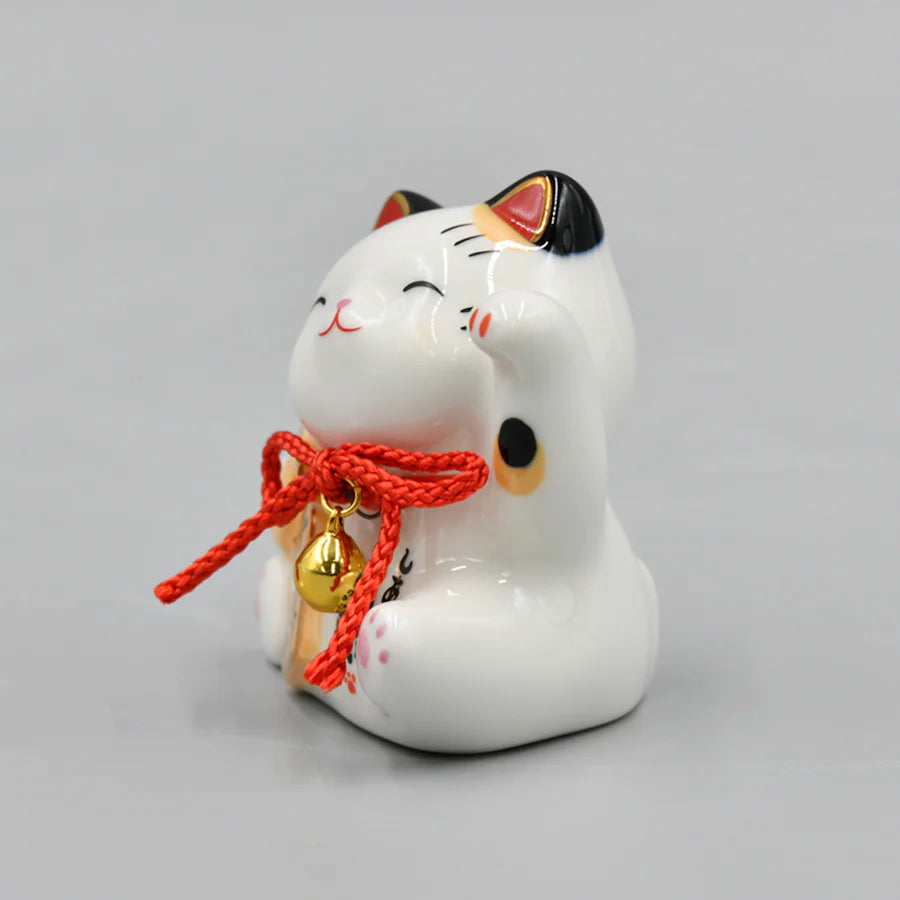
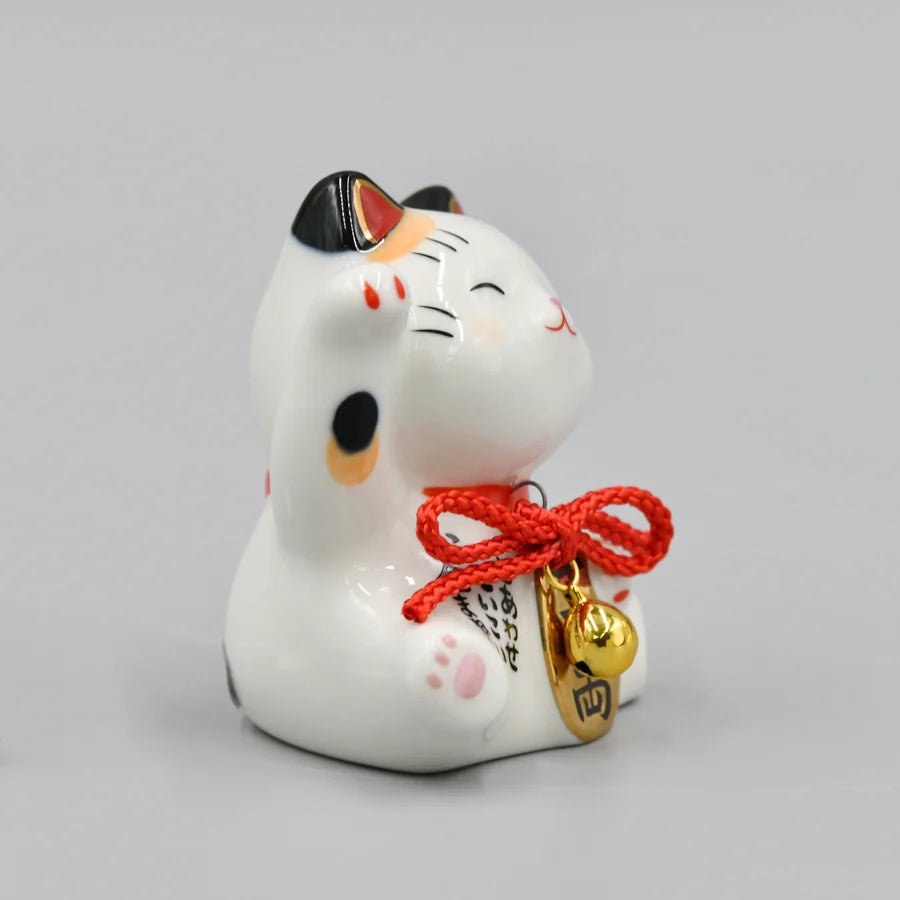
Features
Items: Maneki-Neko Beckoning Cat
Quantity: 1
Size: Height 8cm × Length 7.5cm × Width 5cm
Weight: 180g
Material: Ceramics
Origin: Seto city, Aichi Prefecture, Japan
-
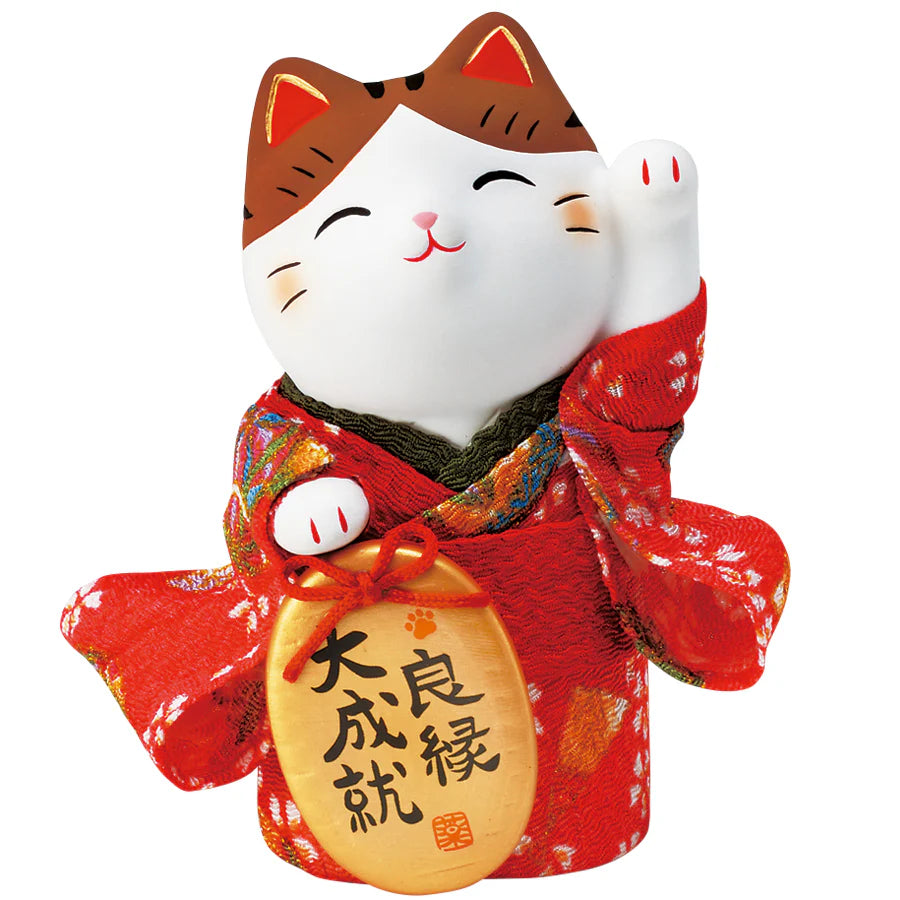
Cultural Heritage and Craftsmanship
Ancient roots in ceramic perfection and excellence.
-
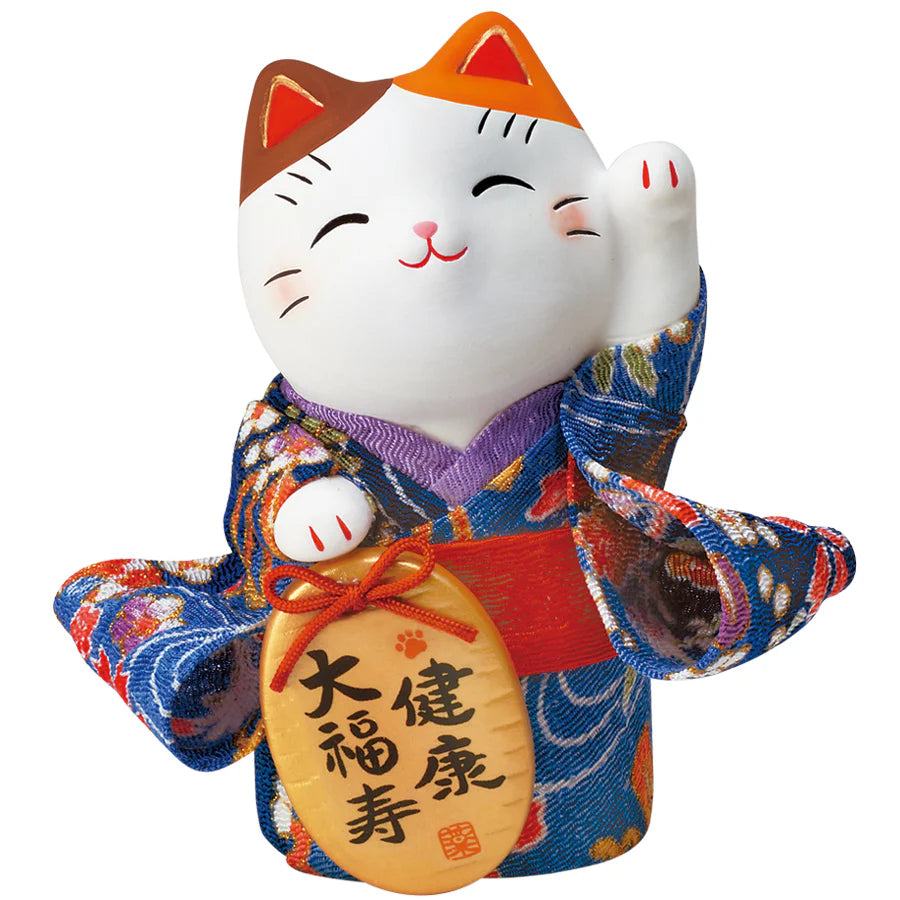
Symbolic Blessings of Health and Longevity
Right paw invites money, and left paw invites people.
-
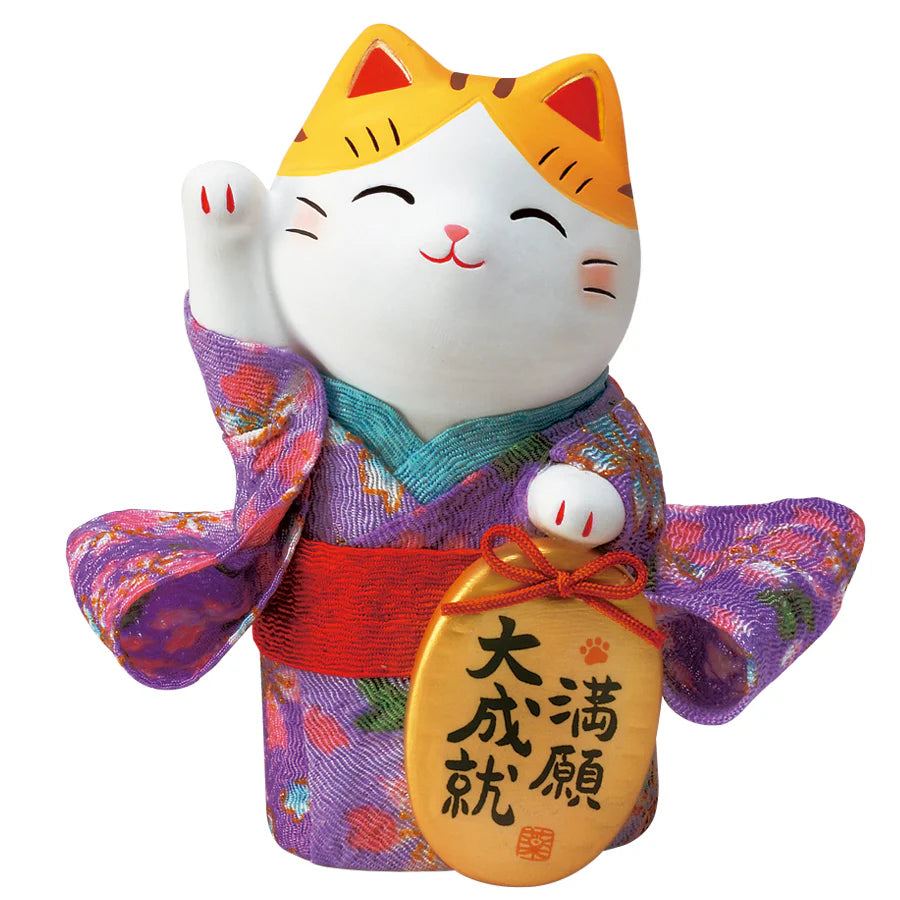
Artisanal Excellence and Meticulous Detail
Crafted with profound tradition and artisanal passion.
-
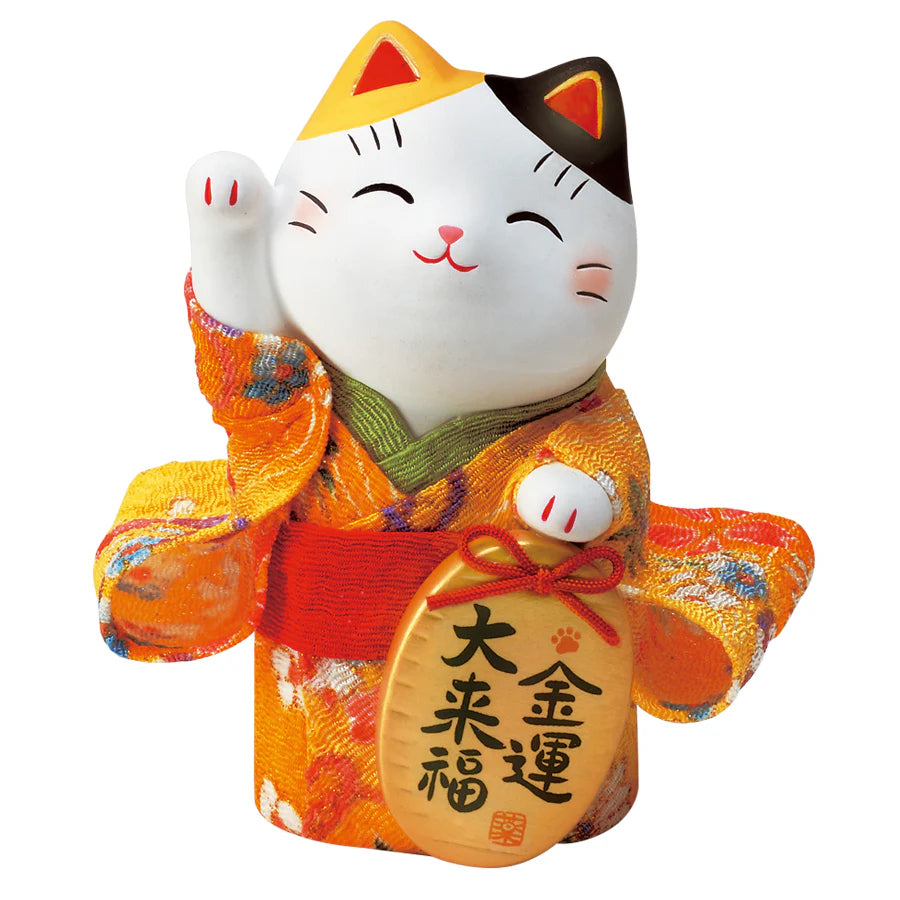
Embracing Unique and Exquisite Variations
Handcrafted elegance and museum-quality craftsmanship.
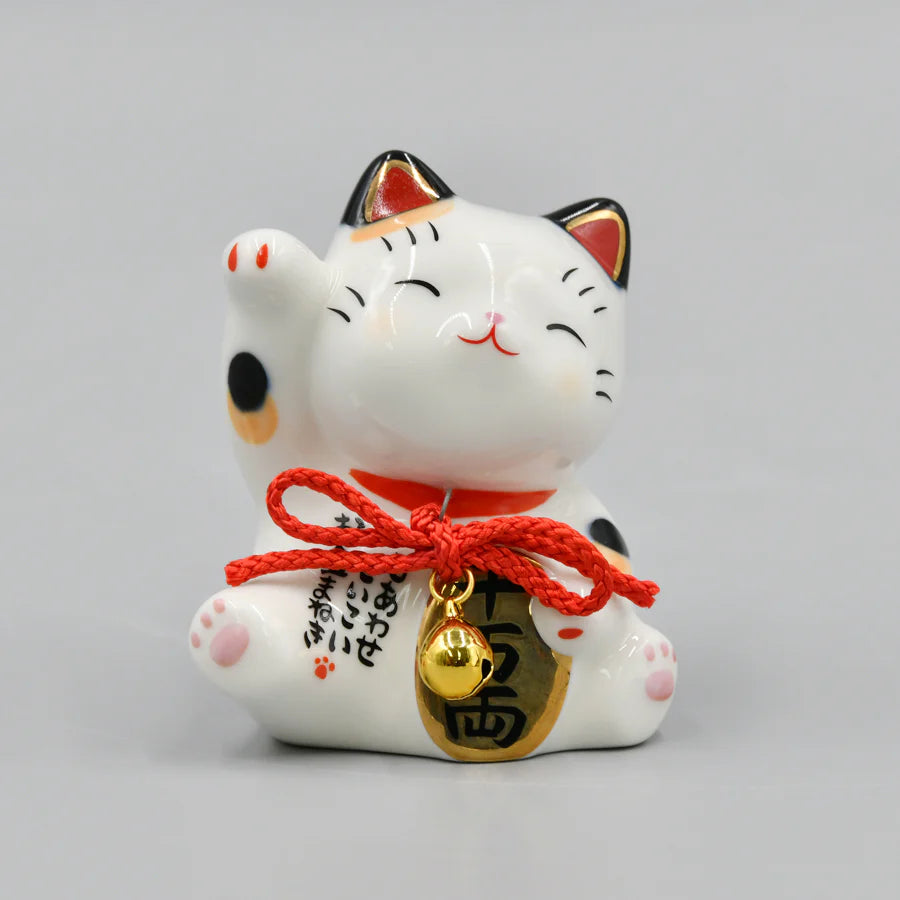
Exuding Delightful Atmosphere of Happiness
A smiling beckoning cat with both paws raised, surrounded by adorable kittens, exudes a delightful atmosphere of happiness. The Harmonious Smiling Beckoning Cat was created with the intention of being a perfect gift for families who adore cats.
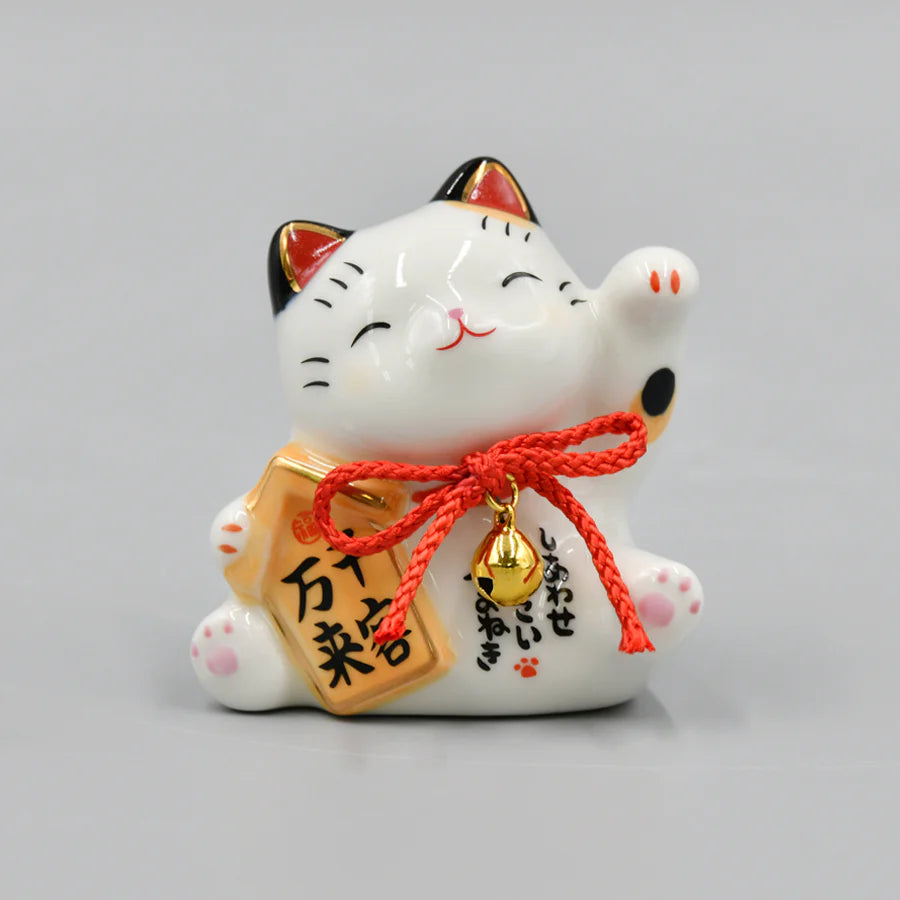
Inviting Further Blessings
As a charm that invites further blessings for cat-loving families, it's ideal for celebrations like baby showers or children's birthdays. With a wide range of variations available, choose your favorite beckoning cat to gift to your loved ones.
Brand Concept of Yakushigama
-
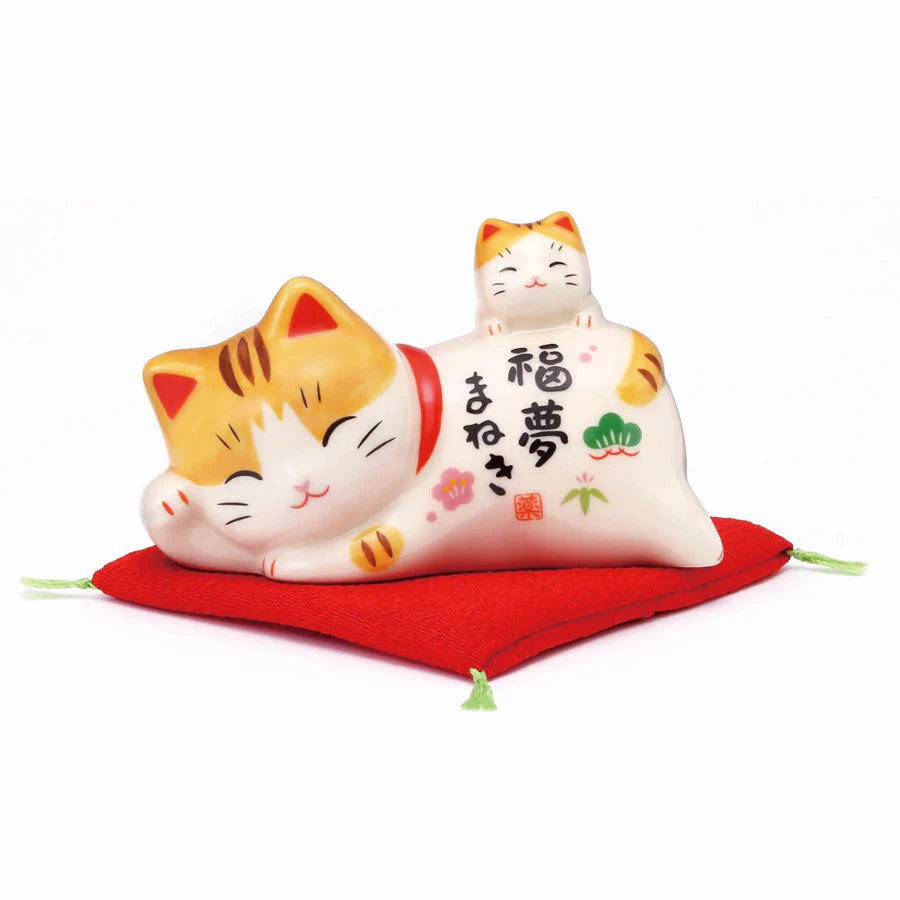
A Thousand Years of Tradition of Seto Ceramics
Aichi Prefecture’s Seto city stands as a venerable center for ceramic ware, boasting an illustrious history spanning over 1,000 years. This historic city is renowned for its rich tradition in ceramics, where artisans have perfected their craft through centuries of dedication and innovation.
-
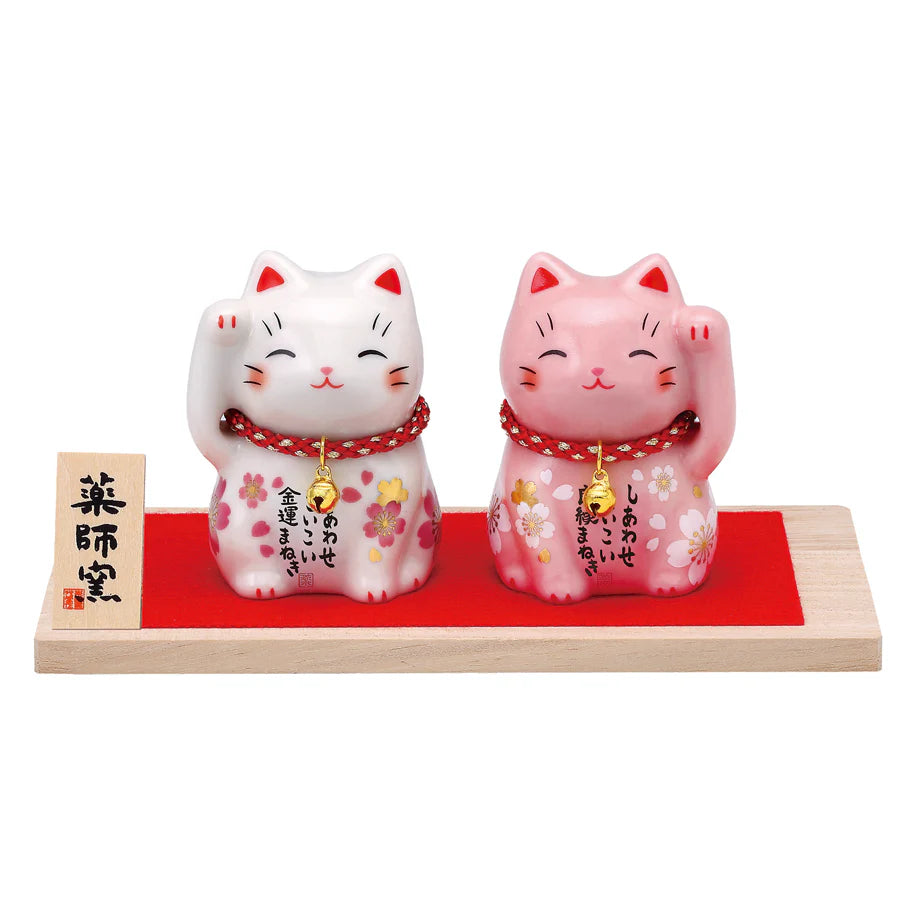
Fusion of Cultural Heritage and Modern Design
The ceramics brand Yakushigama, produced by Chugai Toen, employs techniques that were used in the production of Seto novelty ornaments from the Meiji era onwards. Seto's ceramics are not just products, but a testament to the region's deep cultural heritage and its significant influence on Japanese artistry.
-
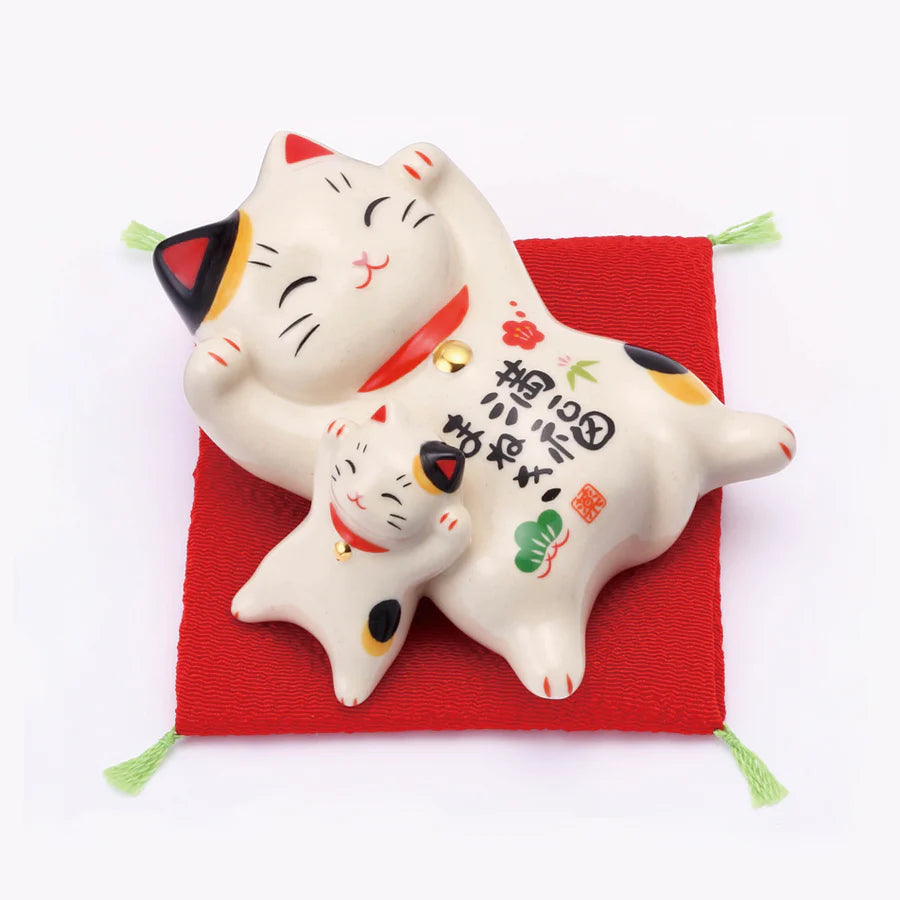
Timeless Craftsmanship with Japanese Charm
Some examples of Yakushigama products are seasonal ornaments, such as girls’ and boys’ festival dolls, Chinese zodiac ornaments, and Maneki-neko beckoning cats. Each piece is not just an ornament but a reflection of craftsmanship and cultural pride, designed to enhance any setting with its unique blend of heritage and style.
Exploring Seto's Ceramic Heritage Along Setogawa River
Ascend the gently sloping hills surrounding Setogawa River, flowing through the heart of the city, and you'll encounter scenes that intimately convey the rich history of ceramics craftsmanship.
Ancient Kilns and Timeless Craftsmanship in Seto
Geometric patterns of kiln walls and fences, built from stacked ancient kiln tools, line the pathways, offering glimpses into centuries-old traditions that define every corner of Seto.
Ceramic Shops Along Setogawa River: Guardians of Tradition
Along the banks of Setogawa River, numerous specialized pottery shops stand in rows, surrounded by kilns and studios where time-honored techniques are still practiced with dedication.
Suhara Ceramic Studio: Crafting Yakushigama Treasures
Among them, Suhara Ceramic Studio, part of Nakawatariyama Kiln's ceramic division, proudly manufactures the zodiac figurines and auspicious items under the brand Yakushigama, alongside the artisan-crafted Seto maneki-neko for our factory brand. From the flames of kilns firing ceramics to the focused brushstrokes of potters in serene concentration, every aspect tells the story of our heritage. Born from the synergy of premium clay, fire, and expertise, Yakushigama ceramics are meticulously crafted at Suhara Ceramic Studio.
The Origin of Yakushigama
-
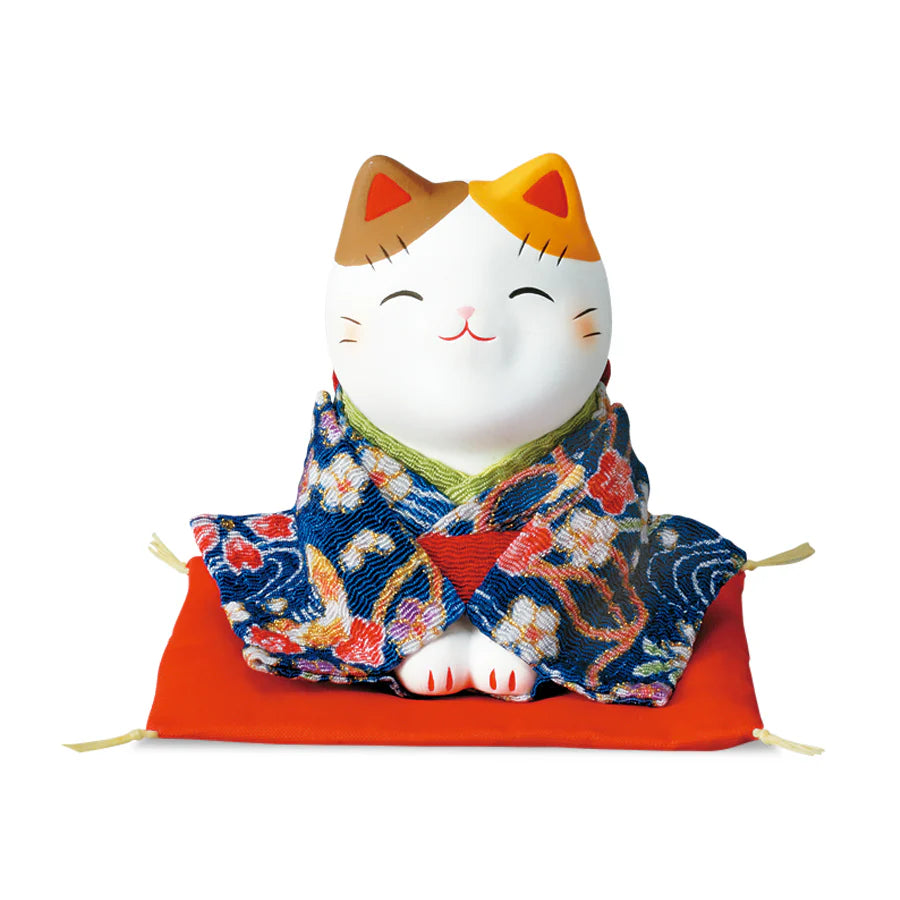
Legacy of Seto's Ceramic Tradition
Yakushigama is the esteemed product brand originating from Nakawatariyama Kiln, a renowned ceramic workshop nestled in Seto City, Aichi Prefecture. Seto City boasts a storied pottery history that spans more than a millennium, making it a revered hub of ceramic craftsmanship in Japan.
-
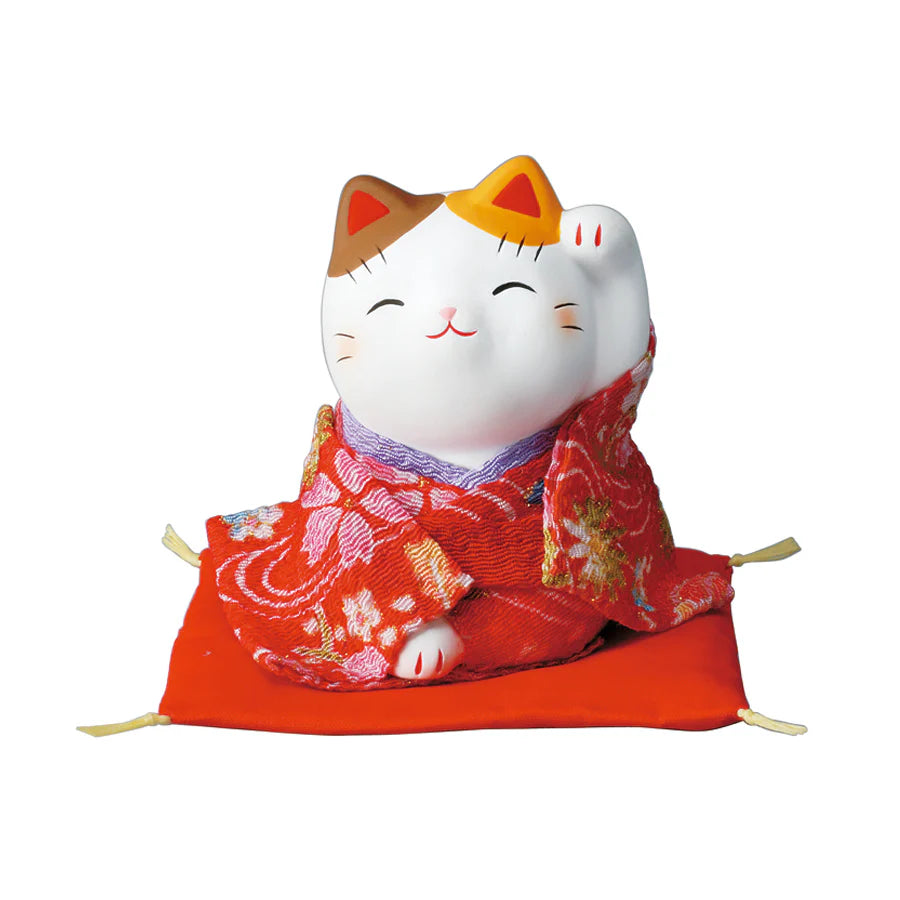
Origins of Yakushigama: Tribute to Yakushi Nyorai
The term "Yakushigama" is derived from a miniature shrine dedicated to Yakushi Nyorai, the Buddha of medicine, which stood within the grounds of Chugai Toen until the end of the Edo Era. It was said to have been built by the Buddhist priest Gyoki. Yakushigama is admired both locally and internationally.
-
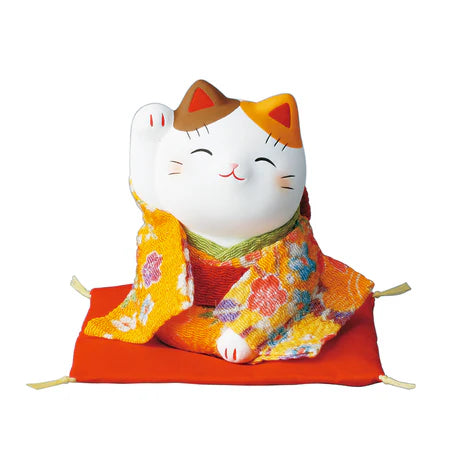
Seto's Annual Tradition: Honoring Yakushi Nyorai
Situated amidst this rich cultural backdrop, Yakushigama has cultivated a legacy of excellence in ceramic artistry. Yakushi Nyorai is currently enshrined in Seto’s Hosenji Temple, and every year on November 8th and 12th, a festival is held in his honor. The festival has become a late-autumn tradition of Seto city.
-
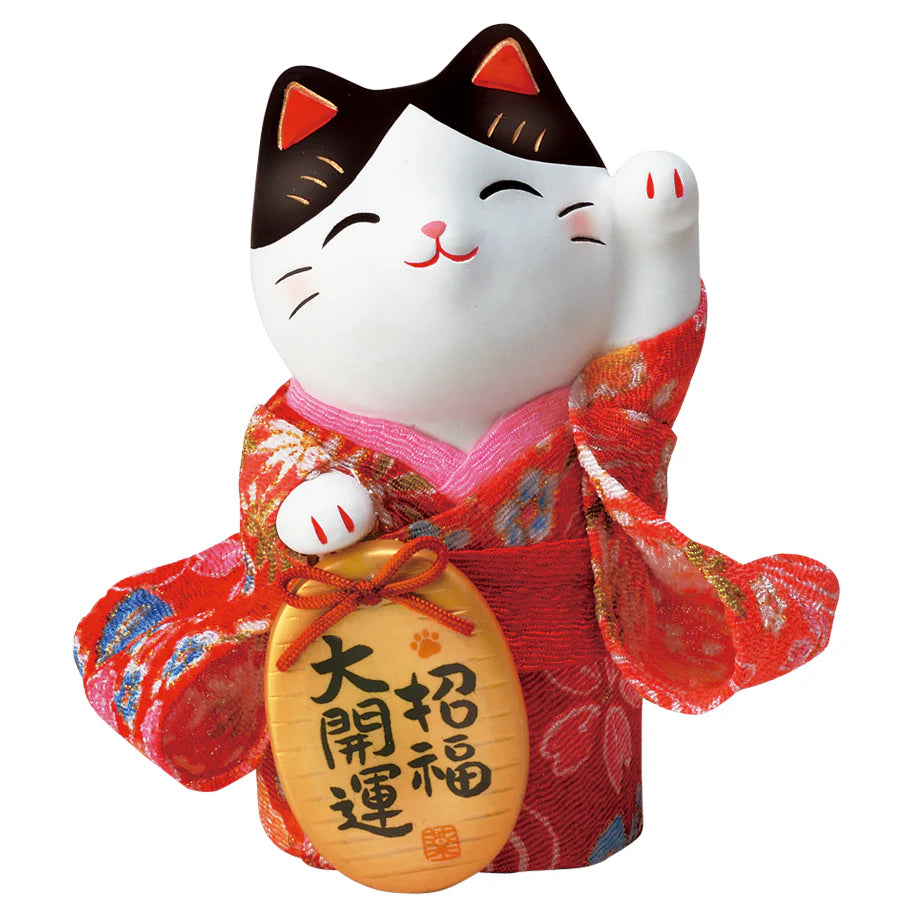
Divine Ceramics: Healing and Serenity
Yakushigama ceramics are said to offer Yakushi Nyorai’s divine protection to those suffering from eye conditions, while the ornaments’ eye-catching designs promote a sense of calm and enjoyment wherever they are displayed. Yakushigama blends traditional techniques with innovative designs to produce exquisite pieces.
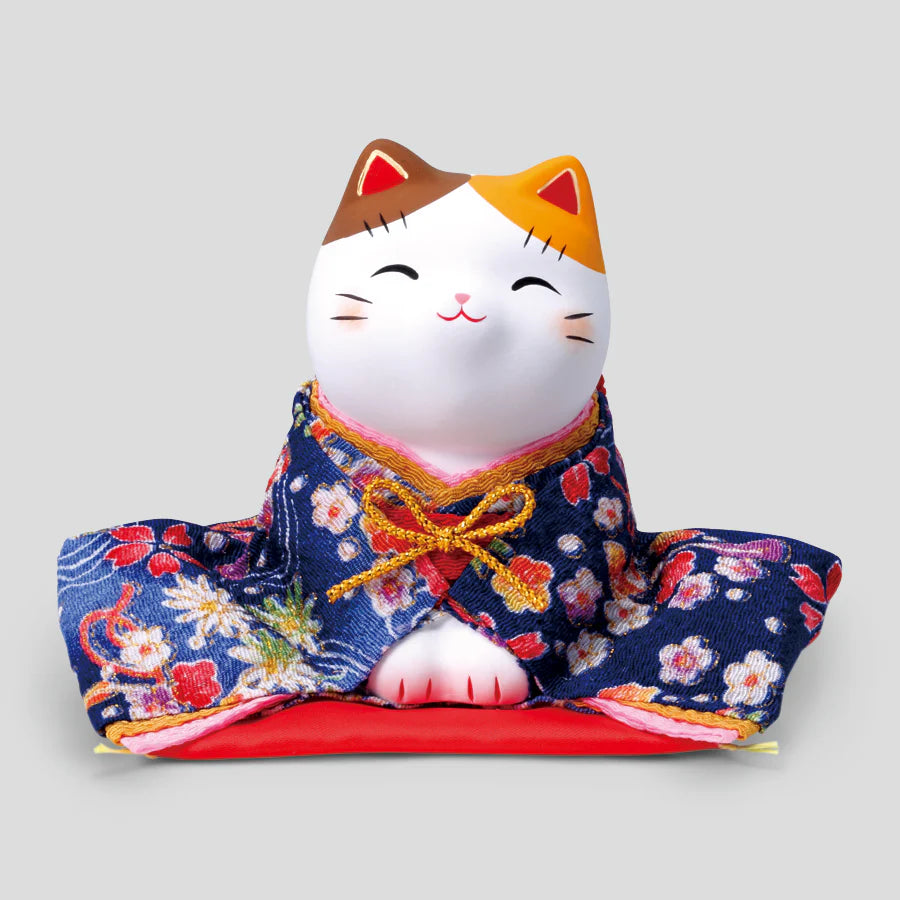
The Beckoning Cat: Symbolism and Display
The figurine depicts a cat, traditionally a calico Japanese Bobtail, with a paw raised in a beckoning gesture. The figurines are often displayed in shops, restaurants, pachinko parlors, dry cleaners, laundromats, bars, casinos, hotels, nightclubs, and other businesses, generally near the entrance, as well as households. Some maneki-neko are equipped with a mechanical paw which slowly moves back and forth.
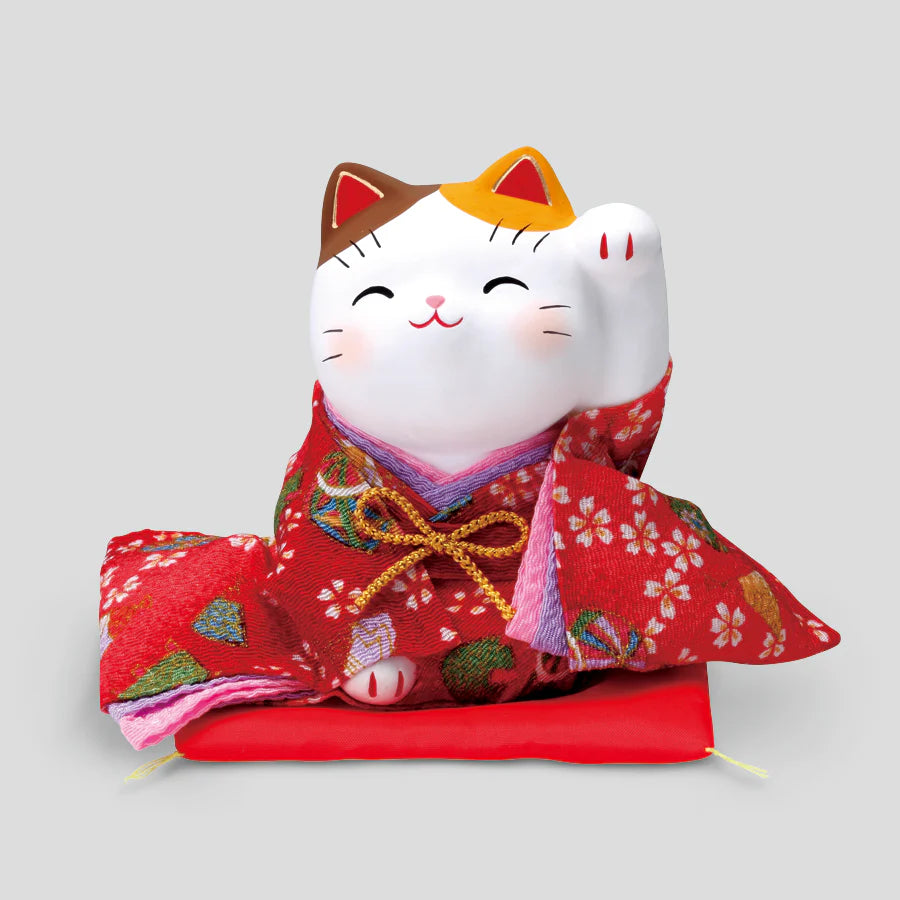
Maneki-Neko: Japanese Origins and Global Appeal
Because of its popularity in Chinese communities (including Chinatowns in the United States), the maneki-neko is frequently mistaken for being Chinese in origin rather than Japanese, and is therefore sometimes referred to as a "Chinese lucky cat" or jīnmāo ("golden cat"). This cat is also prevalent in China domestically, and is usually referred to as simplified Chinese: 招财猫; traditional Chinese: 招財貓; pinyin: zhāocáimāo.
Customer FAQ
What does the beckoning cat mean in Japan? Is the maneki-neko waving or beckoning?
The maneki-neko (招き猫, lit. 'beckoning cat') is a common Japanese figurine which is often believed to bring good luck to the owner. In modern times, they are usually made of ceramic or plastic. The figurine depicts a cat, traditionally a calico Japanese Bobtail, with a paw raised in a beckoning gesture. Named maneki-neko in Japanese (literally “beckoning cat”), the figurine—true to its name and contrary to popular belief—is not actually waving. In Japan, unlike in Western cultures, the way to beckon someone over to you is palm forward, fingers pointing down.
What do the different colors of maneki-neko mean?
White maneki-neko attracts pureness and optimism. Black maneki-neko offers protection from evil. Golf maneki-neko attracts money and wealth. Red maneki-neko is used for fortune in love life. Green maneki-neko attracts prosperity in education and health. Please note! Each product is meticulously hand-painted by artisans, inevitably resulting in slight variations in color or texture during the production process. Please appreciate these variations as inherent characteristics and unique qualities of each item.
Why do we change maneki-neko every two years?
Unleash the continuous flow of fortune with a fresh maneki-neko every two years. Just like fine wine or a well-seasoned cast iron pan, your maneki-neko, the beckoning cat of good fortune, also has a peak performance period. While its charm and allure are undeniable, the potency of its luck-attracting powers gradually wanes over time.
To ensure an uninterrupted stream of prosperity and blessings, we recommend refreshing your maneki-neko every two years. This simple act of renewal allows you to welcome a new wave of auspicious energy into your home or business, revitalizing your path to abundance and success.
The two-year cycle aligns with the natural ebb and flow of energy, mirroring the cyclical nature of life itself. Just as seasons change and plants rejuvenate, your maneki-neko also benefits from a periodic refresh to maintain its potency.
Embrace the everlasting flow of fortune. Don't let your good fortune fade away. Embrace the tradition of renewing your maneki-neko every two years and usher in an endless cascade of prosperity, happiness, and success.
Will my package be packed safely and where will my order be shipped from?
We pack your products carefully to ensure a trouble-free delivery of your goods. We regularly ship more than hundreds of packages per month, but only a few cause problems. We guarantee our products to arrive in perfect condition. If the items from your order are damaged during shipping, we are deeply sorry but please get in touch with our customer support with a detailed photo of the damage within 30 days of your delivery. We will exchange or refund as soon as we can confirm. All orders will be shipped from Japan. Our international shipping is offered through Japan post, DHL, and FedEx.

